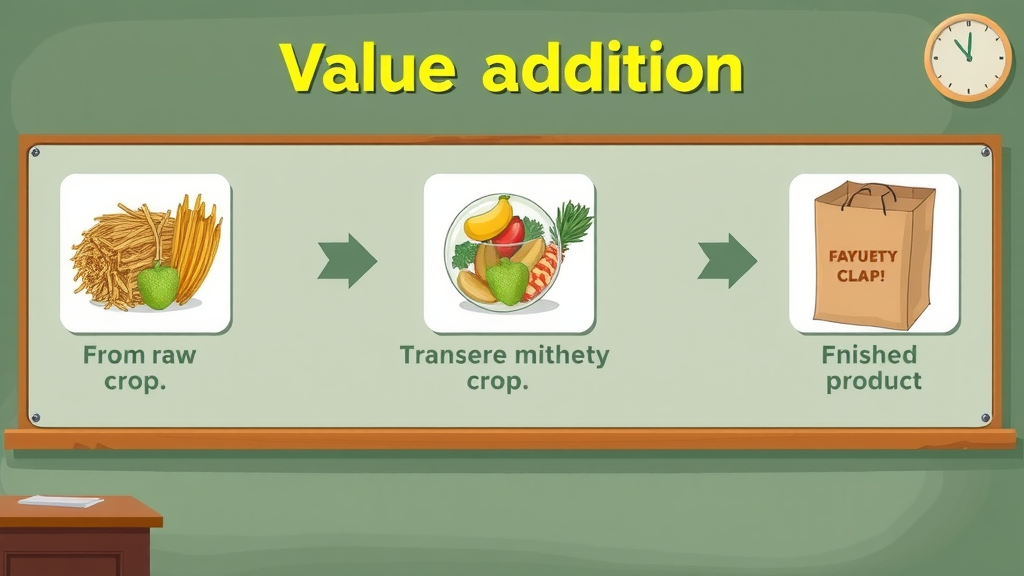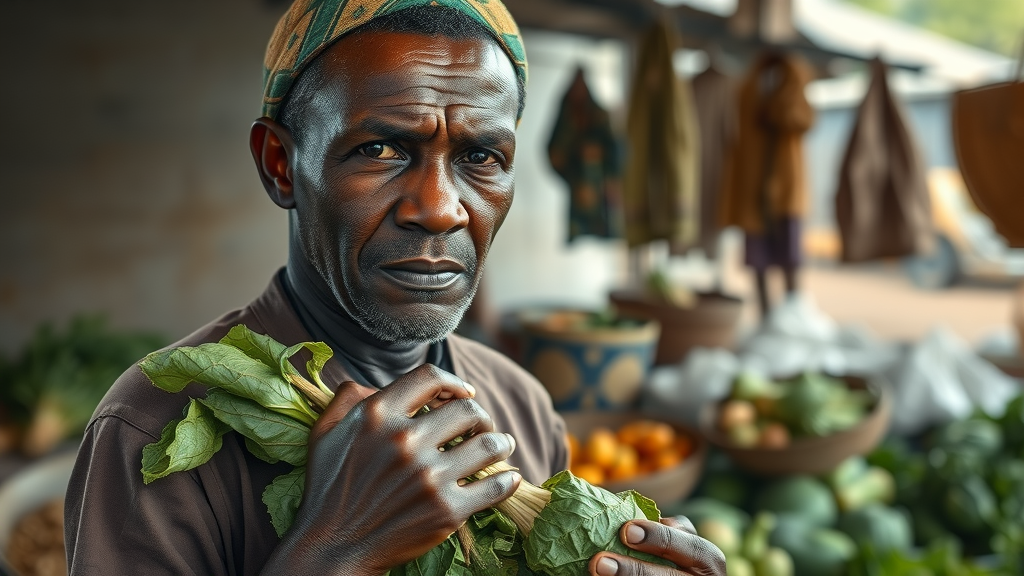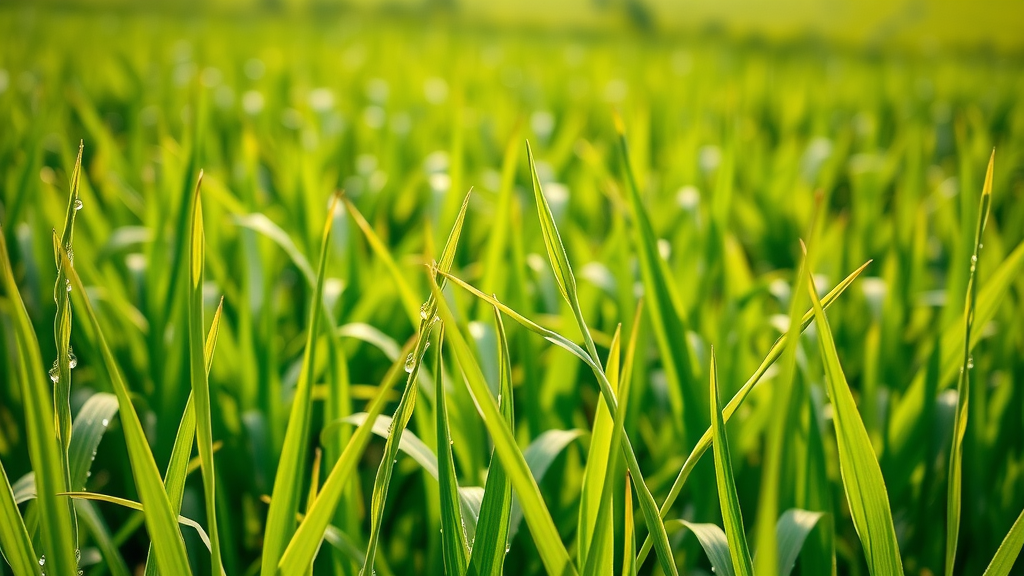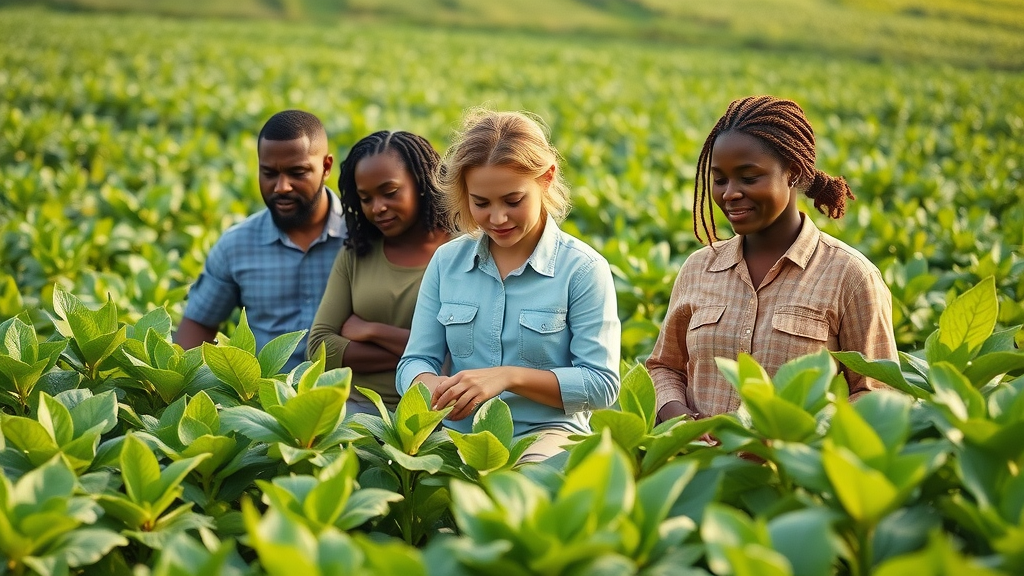Did you know that a litre of lemongrass essential oil can earn thousands of times more than a kilogram of raw grass? This startling fact highlights the transformative future of value addition agriculture in Africa. As African farmers and agripreneurs face increasing challenges selling raw produce, innovative approaches like those championed by Utulivu Naturals are revolutionizing the agricultural landscape. In this comprehensive article, we explore key trends, opportunities, and expert insights shaping the future of agricultural value addition on the continent.
Startling Facts About the Future of Value Addition Agriculture

The future of value addition agriculture in Africa is marked by tremendous potential that remains largely untapped. Currently, many farmers rely solely on selling raw produce, yielding minimal profit margins and vulnerable to market fluctuations. However, adding value to agricultural products—through processing, packaging, or transforming raw crops into finished goods—can dramatically boost incomes and economic resilience.
Utulivu Naturals, a pioneering agribusiness in Uganda, exemplifies this shift. Founder Hilda Nagujja emphasizes, “If you only plan to sell raw produce, be ready for small margins, slow returns, and heartbreak.” Their focus on lemongrass essential oil production has converted what was once a low-value herb into a profitable product line, driving sustainable growth for local communities.
Why Value Addition is a Game-Changer for African Farmers
Value addition revolutionizes traditional agriculture by creating new income streams and elevating raw products' market worth. Instead of competing solely on volume and weight, farmers gain the advantage of selling specialized, finished products that meet diverse market needs—be it in cosmetics, wellness, or food industries.
This shift not only enhances profitability but also builds agricultural resilience by enabling farmers to differentiate their offerings. By investing in value addition, African farmers are poised to claim their rightful place in global value chains and foster rural development and job creation.
“If you only plan to sell raw produce, be ready for small margins, slow returns, and heartbreak.” – Utulivu Naturals
Understanding Value Addition in Agriculture: Definitions and Importance
What is Value Addition in Agriculture?

Value addition in agriculture refers to the process of transforming raw crops into products that have higher market value through physical, chemical, or biological processes. This may include cleaning, packaging, processing, and manufacturing goods such as essential oils, dried herbs, or packaged snacks.
By adding value, farmers and agribusinesses shift from commodity producers to product innovators, unlocking higher revenue streams and opening access to premium markets. This process enhances the entire agricultural value chain by creating diverse products tailored to consumer demands.
The Role of Added Agricultural Products in Enhancing Profitability
|
Product Type |
Profit Margin |
Market Demand |
|---|---|---|
|
Raw Produce |
Low (5-10%) |
Volatile, Seasonal |
|
Processed/Added Products (e.g., Essential Oils) |
High (30-70%) |
Consistent, Growing |
This comparison illustrates how adding value significantly expands profit margins for farmers. For example, Utulivu Naturals' focus on lemongrass essential oil increases profitability by thousands of times compared to selling raw lemongrass. This dynamic boosts incomes, enables reinvestment, and promotes sustainable farming practices critical for Africa's future agricultural success.
The Current Landscape of Added Agriculture in Africa
Challenges Facing Farmers Selling Raw Produce

African farmers selling raw produce encounter numerous obstacles including price instability, perishability, limited market access, and low bargaining power. These challenges result in thin profit margins and economic vulnerability.
Weather variations, lack of storage infrastructure, and long supply chains further erode farmers' returns. These factors create an urgent need for alternative approaches like value addition that can stabilize income and support rural livelihoods.
Success Stories: Utulivu Naturals and Lemongrass Essential Oil

Utulivu Naturals demonstrates how intelligent value addition can transform agriculture. By choosing lemongrass—a crop overlooked by many—as their focus, they pioneered steam distillation to extract essential oils, creating premium products for local and international markets.
Founder Hilda Nagujja shares their journey: “We’ve replaced chemicals in households and made wellness more affordable, all while creating real revenue.” Their success underscores the power of innovation paired with sustainable practices, providing a blueprint for others aiming to embrace the future of value addition agriculture in Africa.
How Added Products Transform Agricultural Business Plans

Incorporating value-added products into agribusiness models is essential for future competitiveness. Agripreneurs discover that integrating processing and product development enriches their offerings and attracts diverse customer segments.
Beyond just growing crops, future-focused farmers develop comprehensive strategies covering sourcing, processing, packaging, marketing, and compliance. This strategic approach fosters scalability and long-term sustainability within African agriculture.
Incorporating Value Addition into Your Agribusiness Strategy
Successful agribusinesses embed value addition by identifying crops with high potential, investing in processing technologies, and aligning with consumer preferences. This includes adopting innovative extraction methods, like steam distillation used by Utulivu Naturals, which enhances product quality and marketability.
Educating and training farmers and workers on quality control and sustainability builds trust with buyers and ensures repeat business. By planning for added products from the outset, African farmers can leapfrog traditional farming constraints and create lucrative agribusinesses.
Key Components of a Successful Added Business Plan
A robust business plan for value-added agriculture involves market research, product development, cost analysis, and compliance with food safety regulations. Clear objectives and financial forecasting guide resource allocation and risk management.
Partnerships with local communities and transparency in sourcing further contribute to brand integrity and consumer loyalty. These elements combined position agribusinesses to thrive in Africa’s evolving agricultural landscape focused on value addition.
Food Safety and Safety Regulations in Added Agricultural Products
Ensuring Compliance with Food Safety Standards

Compliance with food safety and regulatory standards is fundamental to accessing premium markets and protecting consumer health. Value-added agricultural products must meet strict quality controls, from raw material sourcing through processing and packaging.
Facilities equipped with modern laboratories, like those used by Utulivu Naturals, enable testing for contaminants and adhering to international guidelines. This commitment to safety and quality opens global market opportunities for African producers engaging in value addition.
Impact of Safety Regulations on Product Quality and Market Access
Adhering to food safety protocols not only ensures product integrity but also enhances brand reputation. It builds consumer confidence, which translates into better acceptance and higher sales.
While regulatory compliance may increase upfront costs, it safeguards long-term sustainability and unlocks access to lucrative export markets. As such, understanding and integrating safety regulations is critical for African agripreneurs pursuing the future of value addition agriculture .
Expert Insights & Best Practices from Utulivu Naturals
“We’re training communities to see the hidden value in what they’ve overlooked for years.” – Utulivu Naturals
Sustainability and Transparency as Core Values

Utulivu Naturals embodies sustainability and transparency as pillars of their value addition strategy, actively promoting eco-friendly farming and ethical sourcing. Crop rotation and responsible land use maintain soil health and ensure long-term production capacity.
By engaging local communities and providing education, Utulivu cultivates trust and empowers farmers to embrace these practices as integral to their agriculture business models.
Innovative Techniques in Essential Oil Extraction and Value Addition

Innovation drives Utulivu Naturals’ remarkable success. Their adoption of steam distillation technology transforms lemongrass into high-value essential oils efficiently and sustainably. This cutting-edge processing elevates product quality, reduces waste, and sets them apart in the marketplace.
Such innovations are accessible to small and medium-scale farmers with right training and infrastructure investments, illustrating that advanced value addition is attainable beyond large agribusinesses.
Common Misconceptions About Added Agriculture
Value Addition is Only for Large-Scale Farmers

A widespread myth is that value addition requires large-scale operations. In reality, smallholder farmers can also benefit significantly from adding value by collaborating in cooperatives, leveraging affordable technology, and focusing on niche markets.
With proper knowledge and support, small-scale agripreneurs can transform crops through simple processing methods, enhance quality, and increase profitability.
Value Addition Requires Expensive Technology
Contrary to popular belief, value addition does not always demand costly machinery. Many value-added products can be created with basic equipment and traditional techniques adapted to local contexts. Training programs and community initiatives, like those by Utulivu Naturals, provide affordable pathways for farmers to engage in value addition.
Gradual investments in technology, starting with small-scale tools, enable farmers to scale operations while managing costs effectively.
Actionable Tips for Farmers and Agripreneurs
-
Identify crops with high potential for value addition like lemongrass
-
Invest in training and education on value addition techniques
-
Focus on sustainability and responsible sourcing
-
Develop a clear business plan incorporating added products
-
Ensure compliance with food safety and safety regulations
People Also Ask: Common Questions on Value Addition in Agriculture

Why is value adding important in agriculture?
Value addition is crucial because it transforms low-margin raw crops into higher-value products, increasing farmers’ incomes, creating jobs, and improving food security. It enables access to new markets and builds resilience against price fluctuations.
What will agriculture look like in 2050?
By 2050, agriculture will be technology-driven, sustainable, and diversified, with emphasis on value addition, precision farming, and eco-friendly practices. African farmers adopting these innovations will lead global supply chains for processed agricultural products.
What will agriculture be like in the future?
The future of agriculture entails integrated approaches combining traditional knowledge with modern value addition techniques, focusing on quality, sustainability, and market responsiveness to enhance competitiveness and profitability.
What is value addition in agriculture?
Value addition involves transforming raw agricultural goods into finished or semi-finished products through processing, preservation, packaging, or other methods that increase their market value.
Key Takeaways on the Future of Value Addition Agriculture
|
Key Insight |
Impact on Agriculture |
|---|---|
|
Value addition boosts farmer profitability |
Enables higher margins and improved livelihoods |
|
Sustainability is critical |
Ensures long-term productivity and market acceptability |
|
Food safety compliance opens markets |
Enhances product quality and consumer trust |
|
Innovation makes value addition accessible |
Empowers small and medium-size farmers |
|
Education and training are essential |
Facilitates adoption and scalability |
Conclusion: Embracing the Future of Added Agriculture
Transforming African Agriculture One Product at a Time
“A litre of lemongrass essential oil earns thousands of times more than a kilogram of raw grass.” – Utulivu Naturals
The future of value addition agriculture in Africa promises a vibrant transformation led by innovation, sustainability, and community empowerment. Stories like Utulivu Naturals exemplify how focused value addition can unlock new economic potentials and alleviate the hardships faced by traditional farmers.
African agriculture will thrive by embracing these changes—one crop, one product, one farmer at a time—creating a more prosperous, sustainable future for the continent.
Call to Action
-
Discover Utulivu Naturals Located In Uganda
-
Visit https://www.unaturals.shop/ to learn more about sustainable value addition
To further explore the transformative potential of value addition in African agriculture, consider the following resources:
-
“Value Addition in Agro-Industries: Unlocking New Revenue Streams”
This article discusses how value addition can create employment opportunities and stimulate rural development by establishing processing units and distribution networks in underdeveloped areas. ( theindustryoutlook.com )
-
“Creating Crave-worthy Products: The Art Of Value-Added Agriculture In Kenya”
This piece outlines strategies for Kenyan farmers to overcome challenges in value addition, such as collaborating for shared infrastructure and leveraging e-commerce platforms to reach broader markets. ( kilimo.co.ke )

 Add Row
Add Row  Add
Add 




Write A Comment